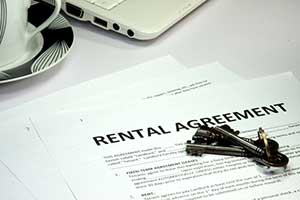 As a property manager, you’re well aware of the challenges you face every day and the overwhelming feeling of getting pulled in twenty different directions at once. The best way to stay on top of things is to be well-organized, delegate tasks, maintain a strong property manager budget, and be sure that you’re saving money in the right ways.
As a property manager, you’re well aware of the challenges you face every day and the overwhelming feeling of getting pulled in twenty different directions at once. The best way to stay on top of things is to be well-organized, delegate tasks, maintain a strong property manager budget, and be sure that you’re saving money in the right ways.
Being a property manager means you have to know about most things that involve your property. From inspection and maintenance to dealing with tenants and figuring out employee wages, you have a lot on your hands. For areas you’re not an expert in, consider hiring a Property Manager service to take care of those tasks effectively and efficiently.
Below are some techniques and strategies that can help you manage your budget. Having a strong budget will help you manage your property more effectively and successfully, saving you loads of stress.stress.
Hire A Property Management Service
The best property managers can recognize when they are not an expert on something. Deciding to hire professional help to take care of a particular task can be a smart idea. For example, things like facility maintenance and thorough inspections can make their way down to the bottom of your priority list because they may be areas in which you lack expertise. You also may not even know what problems to look for if you have no knowledge in these areas.
To help you identify maintenance and inspection issues, you can hire a Property Manager service to perform regular maintenance and inspection. If you select the right service, these property managers will be highly trained and specialized in their particular field so that they can catch any problems before they arise. These services can include inspection and maintenance of facility waterproofing, roofing, foundations, concrete paving, and asphalt. If these areas of your property are neglected, they will ruin the appearance of the entire property, making for unhappy tenants and increasing damage, and expensive repairs.
Concentrate on things that are your strong suit and hire a Property Manager service to help you out with the others. While it might cost you a little more upfront, it will ultimately save you lots of money in your property manager budget because you will be able to deal with, or even avoid potential problems quickly before they get out of hand.
Lease Management
 Staying on top of your leases is extremely important to the overall success of your property manager budget. Implementing a property management program can help make this an easy task. All you have to do is input important information into the program to track important areas such as tenant responsibilities, owner responsibilities, and critical dates.
Staying on top of your leases is extremely important to the overall success of your property manager budget. Implementing a property management program can help make this an easy task. All you have to do is input important information into the program to track important areas such as tenant responsibilities, owner responsibilities, and critical dates.
Dates in leases such as escalations, concessions, and lease renewal need to be monitored closely. Utilizing a property management program can remind you of these critical dates. When you’re worrying about a million other things on your property, you may be so busy that you ignore or forget these important days. Incorporating a strong property management program into your operations will ensure this doesn’t happen.
A property management program can also keep track of when rent and fees are due. The program can alert you and the tenant that the upcoming bill is due. The tenant would also have the opportunity to pay an easy online payment of their bills. Your notification of an upcoming bill is also just as important as notifying the tenant because the owners deserve to collect all of their rent and fees on time. Relying on a steady, reliable inflow of cash will make managing your budget much easier.
Operating Cost Management
 When making repairs or improvements to your property you must consider two things; tenant retention, and tenant acquisition. This creates a tricky line between balancing how much to spend on repairs against the long-term occupancy investment in your building. You want to hire contractors that are going to get the job done right, but not break the bank while doing it. Take the time to find the right contractor that has good recommendations, and fits within your budget.
When making repairs or improvements to your property you must consider two things; tenant retention, and tenant acquisition. This creates a tricky line between balancing how much to spend on repairs against the long-term occupancy investment in your building. You want to hire contractors that are going to get the job done right, but not break the bank while doing it. Take the time to find the right contractor that has good recommendations, and fits within your budget.
When planning out your budget, you need to make sure you have plenty of funds allocated to repairs and improvements. Neglecting these and spending the money elsewhere is only going to come back and hurt you, and most likely cost you more money.
Operating costs go beyond just taking care of the physical aspects of your property, they also have to do with office supply costs, bank charges, and accounting and legal fees, to name a few. You should always know the minimum amount of money it takes for your property to run on a day-to-day basis. However, the minimum amount isn’t there to help you save money and cut costs, it’s so you can make sure you have more funds than just the minimum amount for when things outside of day-to-day management occur. If your budget is super tight and doesn’t account for the unexpected, you could face some serious problems when they arise.
Vacancy Management
It’s no secret that having a vacancy isn’t a good thing. You are wasting money, time, and energy on upkeep, while you receive no return on investment with a tenant’s rent and fees. The current market suggests that there are more vacant spaces then there are tenants. This means you really have to put some effort into filling those empty spaces. You can do this by offering competitive prices paired with an easy leasing process. The easier it is to find out about your space, to contact you, and to apply for a lease, the easier it will be for you to find a tenant.
To avoid vacancies focus on tenant retention. Strong communication, investing in good repairs, connecting with the tenants, and giving them business referrals are all great ways to make your tenant happy and encourage them to stay. Building personal relationships is probably the most important aspect of business. While this may not directly translate to numbers in your budget, ensuring tenant happiness is crucial to their retention. Unhappy tenants are going to pack up and leave, taking their rent money with them and away from your pocket, and making it more challenging for you to fill their vacant space. Bringing in more tenants is going to bring more money into your budget.
Manage The Flow Of Money
One of the most important tasks you have as a property manager is to stay on top of money. You need to be aware of when you expect an inflow of money and where/who it’s coming from. Additionally, and you need to be careful to establish allocated funds for expected and unexpected expenses. Your property manager budget should be very detailed and highly organized so you can clearly see your operations cost, your cash inflows, and reserves for unexpected expenses.
Property management also requires diligence. You can’t afford to be losing money anywhere, so you need to make sure that money isn’t left unaccounted for and that you’re not over-spending on certain things. This can mean using a program to manage your budget, or thoroughly reviewing your work to eliminate mistakes.
A great rule of thumb to remember when it comes to budgeting is that you always want to have more money coming in then you are spending. However, that can get tricky because sometimes you have to spend money to make money, such as investing in improvements that make your property more desirable to tenants. In times where this is the case, you have to be even more diligent with your bookkeeping and spending so you don’t run into any problems.
It’s always a good idea to plan for the unexpected. As previously mentioned, this usually means allocating funds for emergencies. You also must make sure that expected expenses don’t sneak up on you either. This happens a lot of times when tax season rolls around. Many forgotten expenses can cause property managers to scramble for cash to cover these unplanned-for costs. You should always be aware of upcoming expenses so that you’re ready to deal with them on their arrival. The proper budget program can help you avoid common mistakes that occur from unexpected expenses.
Employee Wages
When it comes to employee management, there’s a lot to consider. The decision to hire an employee is a big one and should be made with careful consideration of the current budget. You need to decide whether the potential employee is going to bring in money and pay for themselves, such as a salesperson, or if they will play a vital role that will ultimately save you money, such as a receptionist. Hiring a new employee should not be a hasty decision, it needs to be made with the idea in mind that it’s good for the business and that the budget can afford for it.
Once you’ve decided to bring on a new member to your team, you have to determine how much you’re going to pay them. You don’t want to pay so little that you can’t get anyone with the talent and qualifications for the job, but you also don’t want to overpay and potentially hurt your budget more than necessary. When considering what pay you’re going to offer, you must also consider how much their employment is worth to you and what value they will bring to your operations. This means you have to think about whether or not they’re going to bring in money, whether they’re going to play a vital role that makes other tasks easier, and how essential it is to be delegating responsibilities to them (i.e. if you no longer have time for certain tasks and need someone to take care of them). The offered salary should take all of this into account, and be competitive with salaries of similar jobs in other companies. Most importantly, it needs to fit within your budget.
Office Resources
If your office is pretty well established, spending money on office resources may not be a huge priority. In this case, you should make smart investments over a long period of time to maintain your office, rather than waiting until you need all new computers and have to drop a large chunk of cash on new capital. Much like the maintenance of your property, your office should be maintained in the same fashion.
You also have to consider smaller office resources like paper, pens, or a filing system. A great way to save here is to go completely digital so you’re not routinely spending money on printer ink and other things. Many people fear going completely digital because it can seem less reliable, but it’s quite the opposite. As long as your information is well-protected and backed up, you should have no problems. The likelihood of something happening to digital papers is the same likelihood of your office flooding and destroying your hard copy documents. Investing in customer relationship management systems that help you manage more effectively now, will have you save money on office resources in the long run. Before you make any decisions like this, carefully consult your budget to see if you can make the change and how much money the change could save you.
General Tips For Budgeting
Your budget should always be kept updated and organized. This can mean keeping careful track of it in a notebook, using a spreadsheet, or using a budgeting program that is set up to help guide you through the process. Each one has it benefits so you should pick the one that is most suitable for you.
As the property manager, you need to make sure the property management budget makes sense to you. Organize it in a way that allows you to easily keep track of key information that is always visible and able to be updated if needed. Remember that delegating tasks is always a good idea, so seek out a Property Manager service provider for more information and services.








































